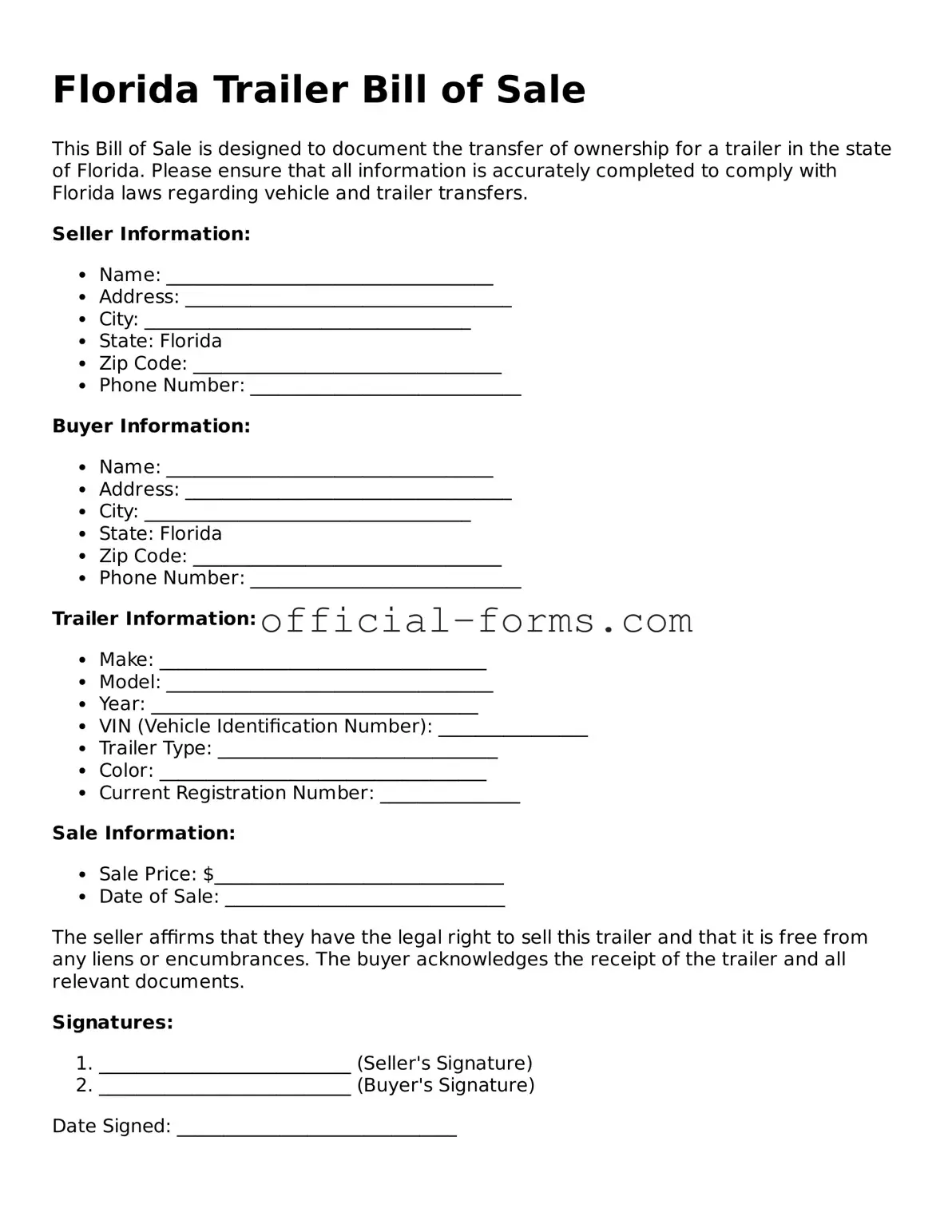Filling out the Florida Trailer Bill of Sale form can seem straightforward, but many people make common mistakes that can lead to complications later on. One frequent error is failing to provide accurate vehicle identification numbers (VIN). This number is crucial for identifying the trailer and ensuring that it matches the title. Double-checking the VIN against the title can save you from potential headaches.
Another mistake is neglecting to include the sale price. This figure is not just a formality; it affects tax calculations and can lead to issues with the Florida Department of Highway Safety and Motor Vehicles. Always ensure that the sale price is clearly stated and matches any agreements made between the buyer and seller.
Many individuals also forget to include the date of the sale. This detail may seem minor, but it is essential for establishing the timeline of ownership. Without a date, proving when the transaction occurred can become problematic, especially if disputes arise later.
Not having both parties sign the form is a critical mistake. The Bill of Sale must be signed by both the seller and the buyer to be valid. Without these signatures, the document may not hold up as proof of sale, which can complicate future registrations or transfers of ownership.
Another common oversight is failing to provide complete contact information for both parties. This includes full names, addresses, and phone numbers. In case any issues arise post-sale, having accurate contact details can facilitate communication and resolution.
Some people mistakenly think that a Bill of Sale does not need to be notarized. While notarization is not always required in Florida, having the document notarized can add an extra layer of legitimacy and protection for both parties. It is worth considering, especially for high-value transactions.
Many also overlook the importance of describing the trailer accurately. Details such as the make, model, year, and color are essential for identification. A vague description can lead to confusion and disputes, so it’s best to be as specific as possible.
Another frequent error involves not keeping a copy of the Bill of Sale. After completing the form, both parties should retain a copy for their records. This document serves as proof of the transaction and may be needed for future reference, such as registration or tax purposes.
Finally, some individuals rush through the process, leading to typos or omissions. Taking the time to carefully review each section of the form can prevent mistakes that could complicate the sale. Slow down, double-check your work, and ensure everything is accurate before submitting the form.

